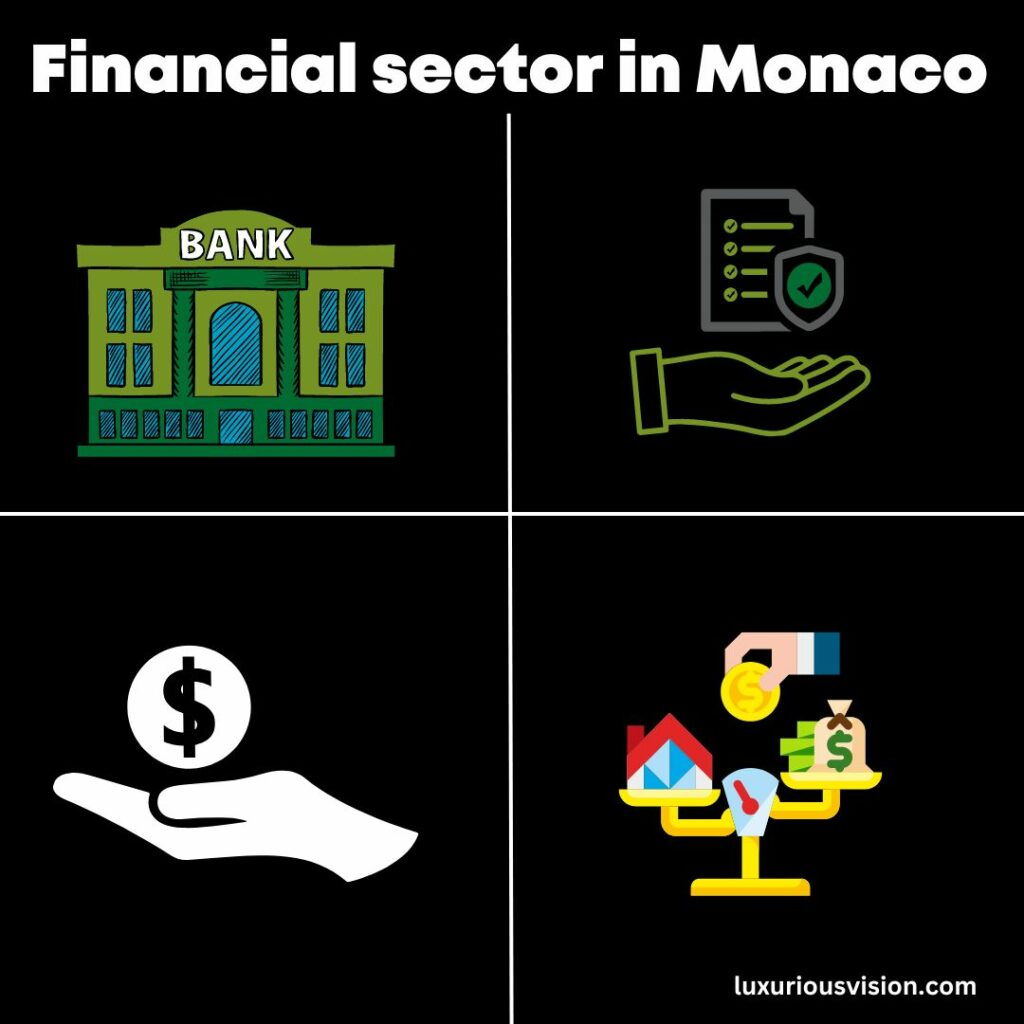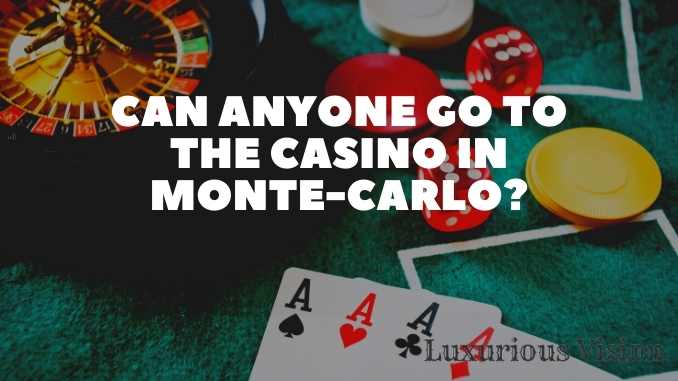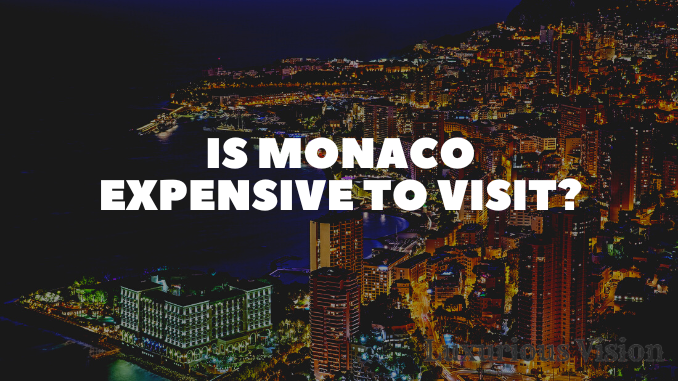While Monaco is the second smallest country in Europe, it’s also one of the richest. If you look at GDP per capita, Monaco is the richest country in the world, according to the IMF. In 2014, the principality of Monaco had a GDP of $122 billion with an average income of $175,000 per person, and more than 40% of its residents are millionaires!
If Monaco were its own country, it would be the 18th wealthiest nation in the world, based on GDP alone (we’re ignoring oil-rich nations such as Qatar or Kuwait).
Why is Monaco so rich? For those of you who have always wanted to know what makes Monaco so rich, it’s quite simple. There are several reasons for this; it started with banking during the Napoleonic Wars and evolved into the Monte Carlo Casino and tourism industries; it has a well-developed financial sector and a stable government, most of which revolve around the fact that the country has no income taxes and very low property taxes.
And it doesn’t just have a lot of money; it also has a lot of money invested in things that make it rich! So how did this tiny country reach such heights? This blog post will explore the key factors that make this country special.
Monaco Is A Small Country With A Rich History
Monaco is a small country with a rich history. The Principality of Monaco was founded in 1299 by Charles I, Count of Provence. It gained independence from France in 1713 and became a republic in 1949.
Over the years, Monaco has attracted many wealthy individuals and families who have sought to keep it largely immune to financial troubles experienced by other countries.
In 1979, Prince Rainier III took over the principality and turned it into a tax haven. This allowed Monaco to continue attracting wealthy individuals while avoiding taxes or regulations that could hurt its economy. Today, Monaco is one of the world’s most prosperous societies and has a GDP per capita of $118,000.
Monaco Has A Well-Developed Financial Sector

Monaco has a well-developed financial sector, thanks partly to its regulatory environment and low tax rates. The principality has a well-educated population, with many graduating from prestigious universities such as the University of Geneva and the University of London.
In addition, Monaco has a strong entrepreneurial spirit, which has translated into an active financial sector.
The financial sector in Monaco is divided into four main categories: banking and insurance, capital markets, asset management, and wealth management.
- The banking sector includes conventional and specialized banks that offer investment banking and securities trading services.
- The insurance sector includes companies that provide life, health, and property insurance.
- The capital markets include the stock exchange and several important bond exchanges.
- The asset management sector provides services such as trust services and brokerage firms.
- Finally, the wealth management sector offers advice on estate planning and investment strategies.
Monaco’s bank secrecy laws make it an attractive location for offshore banking operations.
In addition, the principality offers a low corporate tax rate of just 10 percent, which makes it an attractive location for companies wishing to establish their headquarters in Monaco.
Furthermore, Monaco offers a stable political environment with low levels of crime. This combination of factors has led to the development of a strong financial sector in Monaco
Monaco Has A Low Tax Rate
Monaco has one of the lowest tax rates in the world, making it a popular destination for wealthy individuals and corporations.
The country’s small population and limited landmass make it an attractive location for businesses seeking to avoid taxes. In addition, Monaco benefits from its status as a financial center, which attracts many wealthy individuals and businesses.
As a result of these factors, Monaco has a GDP per capita that is substantially higher than most other countries in Europe.
Monaco Has A Stable Government
Monaco has a stable government because it is an independent country. It does not belong to any larger state and is ruled by a monarchy. This allows for a stable government and makes it one of the richest countries in the world. Monaco also has a low population density, allowing more land per person. This contributes to its high wealth levels.
The Role Of Monaco’s Banking Sector
Monaco’s banking sector is a major part of the tiny principality’s economy. The sector employs about 7% of the workforce and contributes about one-third to Monaco’s GDP.
The main banks in Monaco are Crédit Agricole, UBS, and HSBC. They offer various services, including mortgages, credit cards, and investment products. The banks also have subsidiaries across Europe and beyond.
The banking sector has been a key driver of Monaco’s economic growth over the past few years. In 2016, it accounted for over two-thirds of the total economic output (GDP). This reflects both the strength of the sector itself and its importance to the wider economy.
Monaco’s Tourism Industry
Monaco is a wealthy country with a very small population. It has an average income per capita of $149,577, which is more than triple the U.S. average. Much of Monaco’s wealth comes from tourism, which accounts for over half of its GDP and employs nearly 60% of its workforce. The principality’s attractions include world-renowned luxury hotels, casinos, golf courses, and its picturesque Mediterranean coastline.
How Monaco Makes Its Money
It derives most of its income from tourism and gambling, making it one of the world’s richest countries per capita. The principality’s unique tax laws and regulations have helped make it one of the world’s most desirable places to stay.
Tourism is a big part of Monaco’s economy. About 60% of the country’s GDP comes from tourism, which ranks the principality as the sixth-most-popular tourist destination in the world. The principality has many tourist attractions, including luxury hotels, casinos, golf courses, and beaches.
Gambling is also a big part of Monaco’s economy. The country has more than 30 casinos and 1,000 gaming tables. In 2017, gambling accounted for about 40% of Monaco’s GDP.
Why Monaco Is One of The Richest Country In The World
It’s a small wonder that Monaco has been recognized as one of the richest country in the world. With such an affluent population and strong economy, it is no surprise that there are plenty of millionaires per capita in this tiny nation than anywhere else on Earth.
The Principality of Monaco consists of one square mile, which sits on a peninsula located on France’s Mediterranean coast, halfway between Nice and Marseille. The area includes Monte Carlo, where every night people come to gamble at casinos and watch spectacular shows; La Condamine, where luxury yachts are docked; and Larvotto Beach, with its miles of golden sand. The ocean creates a stunning backdrop for all these beautiful sights. But behind all its glamour lies an economy that thrives on banking secrecy and international trade.
Conclusion
Monaco is one of the richest countries in the world, and it has a lot of reasons for that. For one, Monaco has a well-developed tourism industry which allows people to make money from traveling there. Additionally, Monaco is home to many wealthy individuals who have invested their money in businesses and assets there. Finally, the country has a sound fiscal policy which allows it to maintain high levels of wealth despite fluctuations in global markets.


